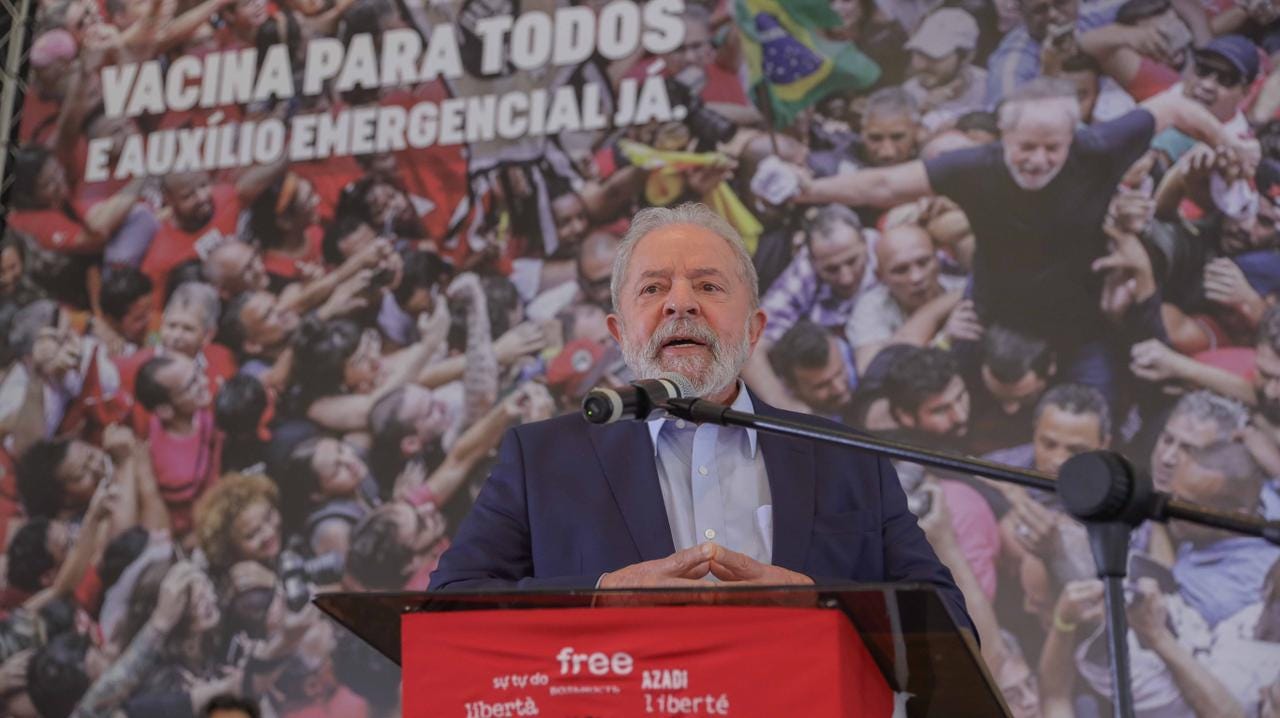Brazil - Lula is back
The former president faces an uphill climb, but to his benefit, Bolsonaro is running scared and none of the other potential candidates are doing better.

2,000 Brazilians are dying per day because the government has mishandled the Covid-19 response. Hospitals are over capacity and the health system is breaking down. Economic support for the poor is being cut due to budget limitations. Instead of acting like it’s a crisis, President Jair Bolsonaro told Brazilians to stop “whining.”
It would be hard to script a better moment for Lula to return to the political scene.
Supreme Court Justice Luiz Edson Fachin annulled the conviction that prevented Lula from running for the presidency in 2018. The move, if upheld by the full Supreme Court as is expected, would allow Lula to run in next year’s election.
Technically, nothing that happened was particularly significant or unexpected. It was a single ruling. It had been somewhat expected in recent months (pollsters were already asking about Lula’s potential candidacy). Lula didn’t officially announce his candidacy. Lots can change between now and the election.
Yet, because of the timing of the announcement at this low moment for Bolsonaro, it served as a political earthquake in Brazil.
Lula’s moment is helped not just by the problems with Bolsonaro, but also the mob of boring and bland establishment men who are vying to serve as a more market friendly and pro-democracy alternative to the current government. Doria, Huck, Gomes, Neves, etc. - they’re all terrible candidates. The lack of moderate candidates with fresh ideas is also a reason Lula’s return to the political scene resonated so strongly in Brazil’s political narrative this week (and perhaps a woman or minority candidate like Marina Silva in the mix instead of the same slew of white guys who have run before would help). In spite of numerous individuals attempting to portray themselves as a credible alternative, Lula is the only one who has created a spark of enthusiasm and momentum.
There is a narrative that Bolsonaro actually wants to face Lula because a polarized election is the most likely scenario in which Bolsonaro can manage to win even with high disapproval numbers. There is some logical sense to that, yet, the main reaction from Bolsonaro’s government this week has been fear. In the hours after Lula’s speech yesterday, a man claiming to be Jair Bolsonaro appeared wearing a mask and giving a speech in which he soberly promised to do a better job on vaccines in the coming months. That’s quite a shift from a president who criticized Brazilians for whining a few days ago.
Lula’s return and his fiery criticisms of the government’s failures were some of the most effective statements made against the current Brazilian president in his two years in power. From what I can tell based on conversations I’ve had, Lula’s critiques hit their target and resonated with the Brazilian public, even among those who have many reasons they dislike and distrust the former president.
It’s too early to believe the polls that suggest Bolsonaro and Lula are destined to meet in a tight second round. There are plenty of times for stumbles, health issues and perhaps even a new dark horse candidate to emerge. Still, until a new event happens to disrupt the race, this is going to be about Lula vs Bolsonaro.
Having run for president a half dozen times before and improving with each run, Lula knows how to campaign. However, there are challenges ahead.
Corruption. The overturning of the corruption convictions did not exonerate Lula. His proclamations of innocence to the contrary, most Brazilians believe he’s guilty of some sort of corruption and abuse of power during his term in office. Given the corruption and mismanagement of the current administration, Lula can attempt to make a case that his corruption doesn’t really count. But it does. The anti-corruption sentiment that helped Bolsonaro in 2018 remains in the Brazilian population and could hurt Lula and help another anti-corruption candidate.
The military. Brian Winter offered some concerns that the Brazilian military will not react kindly to the return of Lula da Silva. That is a space worth monitoring.
Bolsonaro’s authoritarian tendencies. Oliver Steunkel writes that even though Brazil’s checks and balances have held through now, Bolsonaro could become more authoritarian in the coming year if his hold on power is threatened.
The markets. When Lula was elected in 2002, there was a market panic over his potential leftwing policies. He certainly expanded the spending of the state and left some fiscal challenges for his successors, but he didn’t engage in major expropriations or crash the Brazilian economy with hyperinflationary policies. He largely left the Central Bank alone and under professional management, something that calmed markets and assisted in his image as a relatively moderate leftist.
His past performance won’t stop markets from panicking again about potential future results. Many have priced in a Paulo Guedes reform package. The rise of Lula makes that sort of reform far less likely. Bolsonaro knows that Lula’s populism will only gain support in an austerity environment. Markets will worry about Lula no matter how moderate he tries to sound on economic policy.
Thanks for reading
Feedback is welcome. Have a good afternoon.


